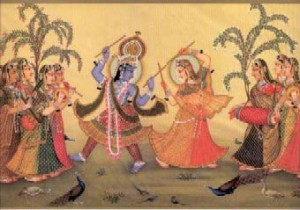Makar Sankranti usually falls on 14th of January every year. This festival is one of the many festivals which have been celebrated since the vedic period. On this day the sun comes across the north of equator. On this very day it is believed that ‘the morning’ of the deities commences. This particular period, when the sun is positioned across the north of equator has been considered as an ‘accomplishment giving period’ by the scholars. Even Astrology endorses this fact and this period is supposed to be auspicious for the various activities like construction of the houses, performance of oblations, establishment of the deities etc. This period is considered to be so auspicious, that if a person dies during this period he is supposed to attain liberation.
 The sun’s position towards the north of equator signifies the arrival of spring season and the end of winter season. The day starts to prolong. On this occasion, all the pilgrimage sites & holy rivers are the thronged by the devotees.At Ganga-Sagar an inland emerges by the grace of deity Varun, which remains for a week and ultimately gets submerged into the sea. The scriptures narrate about the greatness of taking a holy dip on the occasion of Makar Sankranti. After taking the bath it is customary to eat food articles prepared from sesame seeds and ‘Kichadi’ (rice and pulse cooked together). Making donation of sesame seed is also considered as very auspicious.
The sun’s position towards the north of equator signifies the arrival of spring season and the end of winter season. The day starts to prolong. On this occasion, all the pilgrimage sites & holy rivers are the thronged by the devotees.At Ganga-Sagar an inland emerges by the grace of deity Varun, which remains for a week and ultimately gets submerged into the sea. The scriptures narrate about the greatness of taking a holy dip on the occasion of Makar Sankranti. After taking the bath it is customary to eat food articles prepared from sesame seeds and ‘Kichadi’ (rice and pulse cooked together). Making donation of sesame seed is also considered as very auspicious.
Makar Sankranti usually comes in the Hindu month of ‘Magha’. The term ‘Magha’ is derived from the sanskrit word ‘Magh’ which means wealth i.e. gold, silver, apparels, ornaments etc. This month has been named as ‘Magha’ because it is considered to be the month of making donations of the above mentioned things. In Punjab people celebrate it as ‘Lohadi’ a day before ‘Makar-Sanskranti’. On this day the people of Punjab offer maize, ‘Revadi’ (prepared from sesame seeds), in the fire, amidst the singing of folk songs. In Gujarat and Maharashtra people decorate their houses with ‘Rangoli’. They eat food prepared from sesame seeds and jaggery. There is a saying in Maharashtra connected with this day which goes as follows- ‘TIL GUD GHYA ANI GARUD GARUD BOLA.’ Meaning; (Take sesame and jaggery and speak sweetly.) Women of Maharashtra attired in beautiful apparels visit the houses of their relatives and friends, where they are welcomed with ‘Kheel’ and ‘Porridge’. The hosts honour them by applying ‘Kumkum’.
The festival of Makar Sanskranti is celebrated as ‘Pongal’ in Tamil Nadu and Andhra Pradesh. On this occasion people decorate the idols of deities. Cultural programmes are organised to mark this occasion. ‘Pongal’ (Khichadi) is offered to the deities and then it is taken as prasadam. During the ancient time, the third stage of the study of the Vedas commenced on this day. People used to send their wards to the ‘Gurukula’ after performing the sacred thread ceremony of children. On Vasant Panchami, which falls some days later, the worship of ‘Saraswati’ signifies the importance of the commencement of new learning session. In the south, people still continue with the tradition of initiating their children into the study of Vedas, on this day.